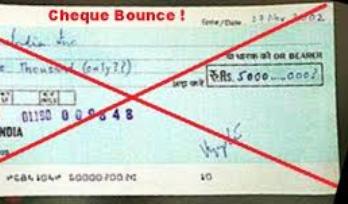

Existence of Debt on Date of Cheque Main Criteria Under Section 138
The question whether the cheques issued in advance for repayment of installments of loans, but described as security in the loan agreement, are covered under the criminal liability arising under section 138 of the NI Act, 1881 came up before the Supreme Court in the case Sampelly Satyanarayana Rao v Indian Renewable Energy Development Agency Ltd.By Sunil Garodia
First publised on 2016-09-20 12:55:18
The court was of the opinion that to determine any criminal liability under the said section, two things needed to be examined:
1. Whether the cheque was issued to discharge existing enforceable debt or liability, or
2. Whether it was issued as an advance payment without there being any subsisting debt or liability.
If it was the second case, then the advance payment could be covered under section 138 only if an enforceable debt or liability could be established on the date the cheque was presented for payment. This was decided by the apex court in the case Indus Airways Pvt. Ltd. and ors v Magnum Aviation Pvt. Ltd. and Anr. The court had ruled then that if a cheque was issued as advance for purchase of some materials, liability for the drawer would only arise if the materials were actually received by him. If the purchase order was cancelled, or if the materials were not supplied, before the date of the cheque, its presentation and dishonor would not make the drawer criminally liable. This was for the simple reason that no enforceable debt or liability subsisted on the date of the cheque as either the order was cancelled or the materials were not supplied.
But in the instant case, the drawer had issued the cheques to make the repayment of principal plus interest on pre-defined and agreed dates upon receiving the loan. As the loan had been disbursed, the debt had become enforceable. The plaintiff had argued that these cheques were issued as security and no debt or liability subsisted on the dates they were issued. But the court was of the view that reference to the facts of the present case clearly shows that though the word security is used in clause 3.1(iii) of the agreement, the said expression refers to the cheques being towards repayment of installments. The repayment becomes due under the agreement, the moment the loan is advanced and the installment falls due. It is undisputed that the loan was duly disbursed on 28th February, 2002 which was prior to the date of the cheque leaves. Once the loan was disbursed and installments have fallen due on the date of the cheque as per the agreement, dishonour of such cheques would fall under Section 138 of the Act. The cheque leaves undoubtedly represent the outstanding liability.
Hence, it is clear that the date on which the cheques are handed over does not count. It is the date written on the cheque leaf for presentation for payment that would be considered while deciding whether debt or liability existed. As the loan had been disbursed much before the cheques were presented and dishonoured, the plaintiff could not take the plea that there was no debt or liability.











